 At a recent Bessemer Society event in Oxford, amongst discussions about new space, disruptive technologies and the cubesat revolution, one of the participants made the following observation.
At a recent Bessemer Society event in Oxford, amongst discussions about new space, disruptive technologies and the cubesat revolution, one of the participants made the following observation.
“Earth is surrounded by layers that act to protect life on the planet from the harshness of space: we know about our atmosphere and the ozone layer, but in the Anthropocene, we’ve added another layer that is becoming just as critical: a thin veneer of data.”
We have become increasingly reliant on the ever growing swarm of satellites that orbit our planet: navigation, communications, security, and the monitoring of everything from natural disasters to climate change. But turning that stream of critical data into high-value intelligence for decision makers is becoming big business: estimates for the booming Earth Observation (EO) market vary from between $8.5bn to $15bn by 2026.
One company in the vanguard of the EO revolution is Harwell-based Rezatec.
Rezatec take data from a wide range of sources, and use geospatial analytics to transform it into something called ‘landscape intelligence’ – usable information on forests, crops, water catchments and even city planning. Increasing numbers of governments, NGOs, utilities and businesses around the globe use this intelligence to do everything from stopping the spread of crop diseases to better safeguarding the security of water supplies.
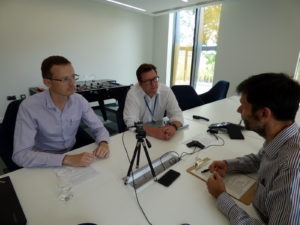 We sat down with Chief Operating Officer Philip Briscoe and Chief Technical Officer Andrew Carrel to better understand what Rezatec does and why Earth Observation science is becoming so critical: from improving crop yields to making our cities more sustainable.
We sat down with Chief Operating Officer Philip Briscoe and Chief Technical Officer Andrew Carrel to better understand what Rezatec does and why Earth Observation science is becoming so critical: from improving crop yields to making our cities more sustainable.
It seems as if Rezatec use almost every cutting-edge area of science and technology to bear on this data layer: data analytics and machine learning, climate science and biosecurity.
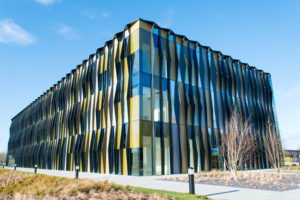 It’s genuinely exciting and Rezatec are growing fast, winning awards, and recently moved into a spanking new HQ building on the Harwell Campus (‘Quad One’). This Autumn, Rezatec joined forces with the European Space Agency (ESA) in contributing to the Invisible Words exhibition at the Eden Project.
It’s genuinely exciting and Rezatec are growing fast, winning awards, and recently moved into a spanking new HQ building on the Harwell Campus (‘Quad One’). This Autumn, Rezatec joined forces with the European Space Agency (ESA) in contributing to the Invisible Words exhibition at the Eden Project.
Earth Observation is transforming our relationship with the planet, and as we’ll discover, we’ve only just scratched the surface…
(Listen now on SoundCloud – iTunes – Stitcher – for a comprehensive set of show notes, including links, analysis and organisation contact, consider becoming a supporter through Patreon – or email us for more details)
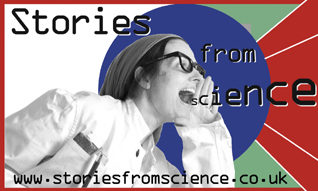
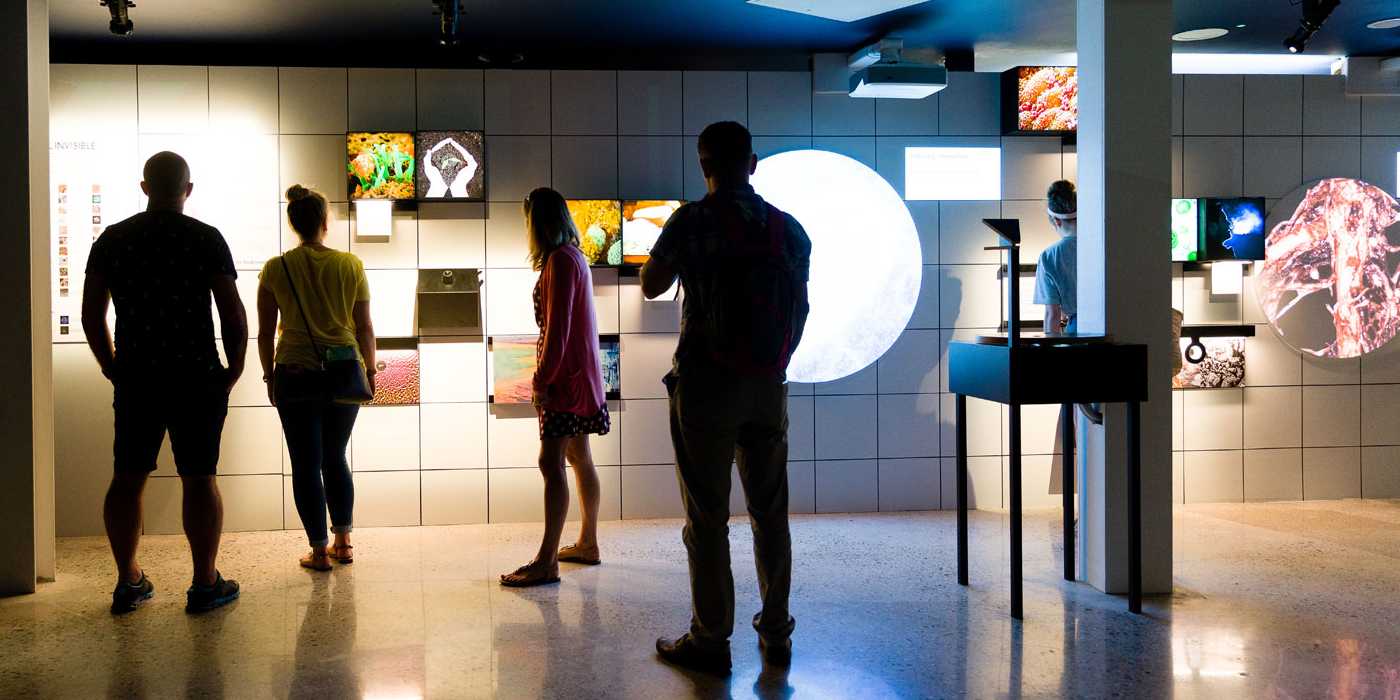
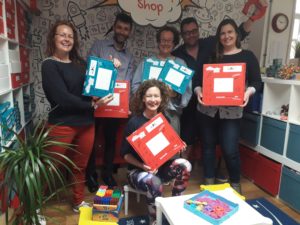 There are many people in life who are passionate about STEM, education and science, and who work hard to connect with children, to unlock a lifelong love of science. But outside mainstream education, it would be difficult to find anyone who has so consistently and brilliantly applied herself in the service of science and education as Renee Watson.
There are many people in life who are passionate about STEM, education and science, and who work hard to connect with children, to unlock a lifelong love of science. But outside mainstream education, it would be difficult to find anyone who has so consistently and brilliantly applied herself in the service of science and education as Renee Watson.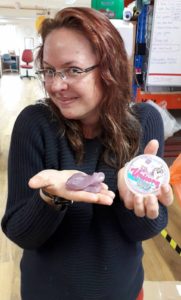 Growing up in rural Australia, with no obvious mentors or scientists to ignite her own spark (save one, which we learn about in this episode of Stories from Science) she is almost uniquely qualified to identify and connect to her diamonds in the rough. These are the smart, motivated, curious children who fall through the cracks of mainstream education and yet are exactly the kinds of young people who will see things differently, and provide the new ideas and creativity in science that will solve problems and move society forward.
Growing up in rural Australia, with no obvious mentors or scientists to ignite her own spark (save one, which we learn about in this episode of Stories from Science) she is almost uniquely qualified to identify and connect to her diamonds in the rough. These are the smart, motivated, curious children who fall through the cracks of mainstream education and yet are exactly the kinds of young people who will see things differently, and provide the new ideas and creativity in science that will solve problems and move society forward.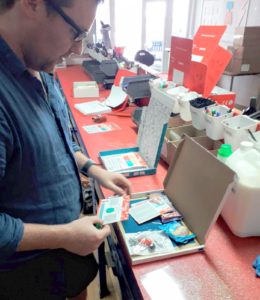 The Curiosity Box allows children and their families to do science and experiment in their own homes through a subscription service which sees a regular box crammed full of science fizz through the letterbox (metaphorically), with the aim to make science as common a topic to discuss around the kitchen table as politics and TV shows.
The Curiosity Box allows children and their families to do science and experiment in their own homes through a subscription service which sees a regular box crammed full of science fizz through the letterbox (metaphorically), with the aim to make science as common a topic to discuss around the kitchen table as politics and TV shows.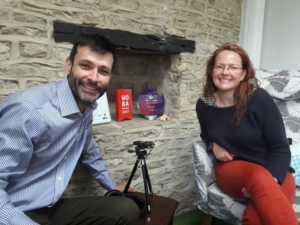 It’s difficult not to get swept up in this enthusiasm for revolution. In this inspiring hour-long interview, we discover why science capital is like carrying a suitcase, we learn the constituent parts of Unicorn Poo, and go toe-to-toe with STEM Barbie.
It’s difficult not to get swept up in this enthusiasm for revolution. In this inspiring hour-long interview, we discover why science capital is like carrying a suitcase, we learn the constituent parts of Unicorn Poo, and go toe-to-toe with STEM Barbie.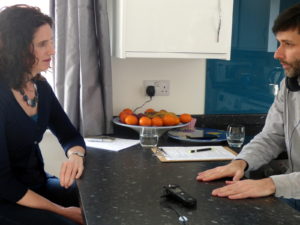 The teaching of Science, Technology, Engineering and Maths – STEM – is possibly *the* hot topic in education at the moment. It’s no exaggeration to say that we need hundreds of thousands of new scientists and engineers in the coming years, but in a time of huge educational challenges, how exactly do you inspire and ‘hook’ young children on science, and give them the hunger and resilience to succeed in STEM subjects for the long term?
The teaching of Science, Technology, Engineering and Maths – STEM – is possibly *the* hot topic in education at the moment. It’s no exaggeration to say that we need hundreds of thousands of new scientists and engineers in the coming years, but in a time of huge educational challenges, how exactly do you inspire and ‘hook’ young children on science, and give them the hunger and resilience to succeed in STEM subjects for the long term?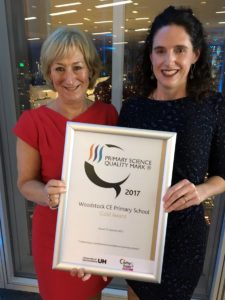
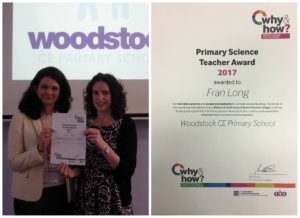
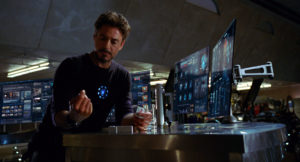
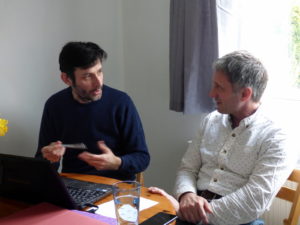 No-one knows this better than Stephen Bennington, founder and director of science spin-out consultancy Krino Partners. His science journey took him from one of the world’s biggest research facilities (the ISIS neutron source at Harwell), to helping spin-out science and technology companies at universities including Sussex University and University College London (where he was visiting professor for Nanotechnology).
No-one knows this better than Stephen Bennington, founder and director of science spin-out consultancy Krino Partners. His science journey took him from one of the world’s biggest research facilities (the ISIS neutron source at Harwell), to helping spin-out science and technology companies at universities including Sussex University and University College London (where he was visiting professor for Nanotechnology).